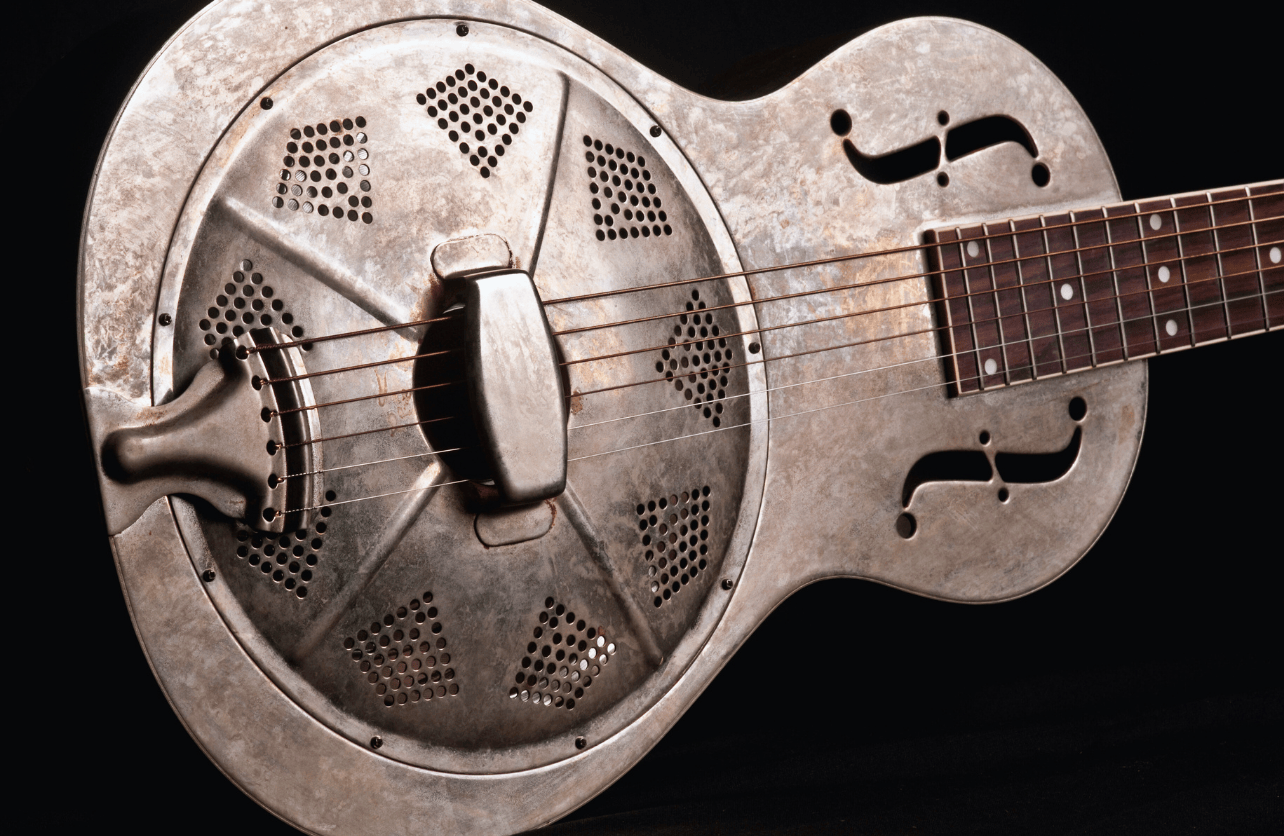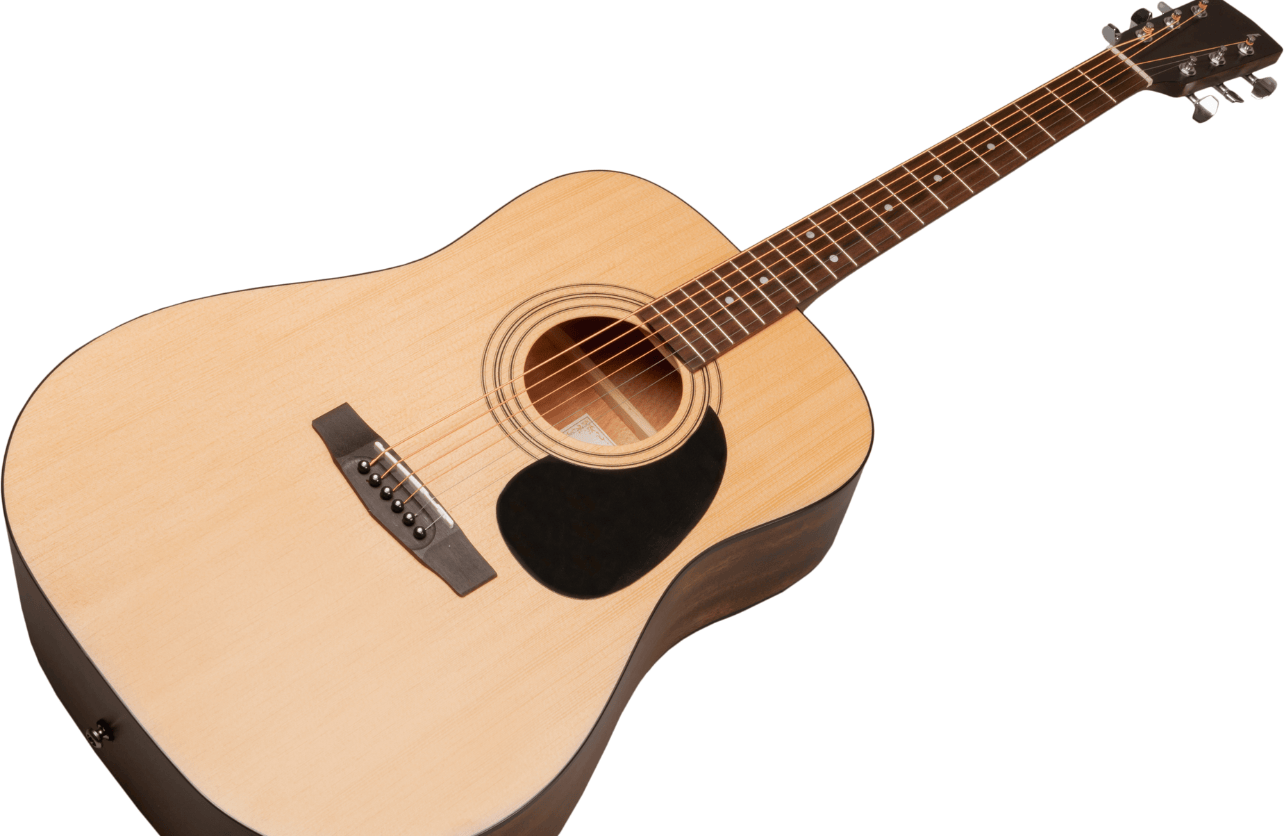Resonator Guitar vs. Acoustic Guitar

When diving into the world of stringed instruments, you’ll find resonator guitars and traditional acoustic guitars each offer something unique. While both share the basic anatomy of a guitar, their differences lie in design, sound, and functionality. Understanding what sets them apart can help you decide which instrument suits your musical needs.
What Is a Resonator Guitar?

Resonator guitars are built with one or more metal cones, or resonators, in place of the traditional wooden soundboard. This design amplifies sound acoustically, creating a bright, metallic tone with increased volume. Originally developed in the 1920s, resonator guitars were designed to produce louder sounds before the invention of electric amplification.
There are three main types of resonator guitars: biscuit cone, spider bridge, and tricone. Biscuit cone models are known for their sharp, punchy tones and are a staple in blues and slide guitar. Spider bridge designs offer a warmer, rounded sound, making them popular in bluegrass. Meanwhile, tritone resonators provide a balanced, complex tone ideal for fingerpicking styles.
What Is an Acoustic Guitar?

The acoustic guitar relies on its hollow wooden body to amplify sound naturally. Its versatility makes it a favorite across a wide range of genres, from folk to pop to classical. Acoustic guitars come in various shapes and sizes, including dreadnought, concert, and jumbo styles, each offering distinct tonal characteristics and playing comfort.
An acoustic guitar is often the go-to choice for beginners due to its straightforward design and ease of play. Whether you’re strumming chords, fingerpicking melodies, or flat-picking intricate runs, the acoustic guitar adapts to nearly every musical style and technique.
Key Differences Between Resonator and Acoustic Guitars
The tonal qualities of resonator and acoustic guitars are starkly different. Resonator guitars deliver a bright, metallic sound with pronounced sustain, making them ideal for cutting through a mix in live settings. Their distinctive tone shines in genres like blues, country, and bluegrass. In contrast, acoustic guitars provide a warm, natural tone with a broad dynamic range. This makes them more suitable for softer, melodic styles like folk, ballads, or fingerstyle playing.
Playing techniques also vary between the two instruments. Resonator guitars are often played with a slide, producing gliding, expressive notes that define their sound. Their higher string action makes them less beginner-friendly but perfect for experienced players exploring open tunings and bluesy riffs. Acoustic guitars, with their lower action, are easier to play and accommodate a range of techniques, from strumming to intricate fingerpicking.
The build of these instruments further highlights their differences. Resonator guitars often feature partially or fully metal bodies, making them heavier and more robust. Their unique construction enhances durability but limits tonal warmth. Acoustic guitars, crafted from tonewoods like spruce, mahogany, and rosewood, are lighter and more resonant. Their wooden bodies provide a natural aesthetic and ergonomic comfort, making them portable and versatile.
Amplification and Use Cases
Resonator guitars are naturally louder due to their metal cones, which amplify sound acoustically. This makes them a popular choice for live performances without electric amplification. However, they can also be fitted with pickups for amplified settings. Acoustic guitars, while quieter, are easily amplified with piezo pickups or built-in electronics. This allows for greater tonal control in live or recording environments.
For those passionate about blues, country, or bluegrass, the resonator guitar is a clear choice. Its distinctive tone and suitability for slide techniques make it a must-have for musicians in these genres. On the other hand, acoustic guitars are perfect for those seeking versatility. They excel in various musical styles and are more accessible for beginners or players who prefer a softer, melodic sound.
Making the Right Choice
Selecting between a resonator and an acoustic guitar depends on your musical goals and style. Resonator guitars offer a unique voice that stands out in specific genres, while acoustic guitars provide all-around functionality for a wide range of music. If possible, owning both instruments can expand your creative possibilities and give you the best of both worlds.
Whether you’re sliding into a blues riff or strumming a heartfelt ballad, understanding these differences will help you make the right choice. Both guitars bring something special to the table, ensuring your music resonates in the way you envision.
Your Trust, Our Core Commitment
At Rising Tech, earning and maintaining your trust is the cornerstone of our mission. We're dedicated to transparency, impartiality, and the relentless pursuit of truth in every article, review, and recommendation we publish. Our commitment to these principles ensures that you, our valued reader, are always equipped with reliable and unbiased information. Let us be your trusted guide in the ever-evolving world of technology.